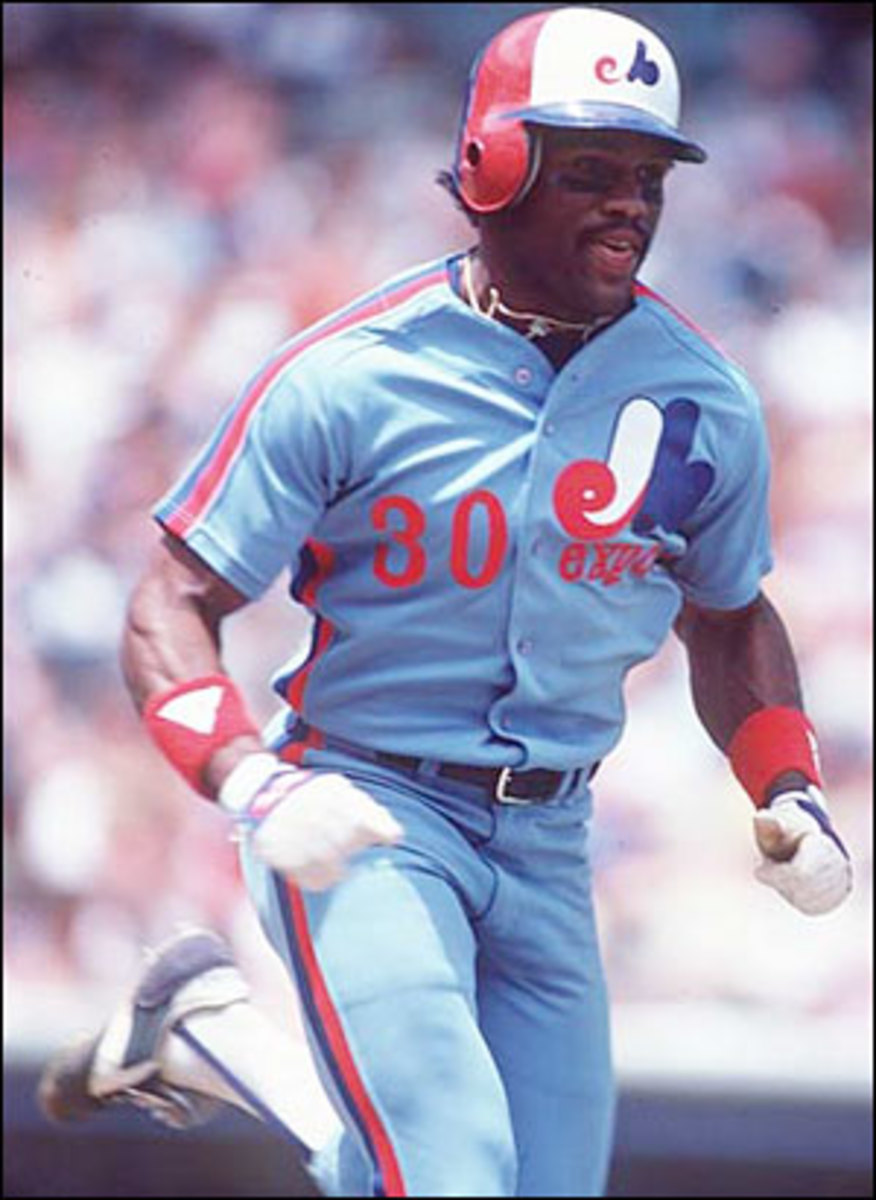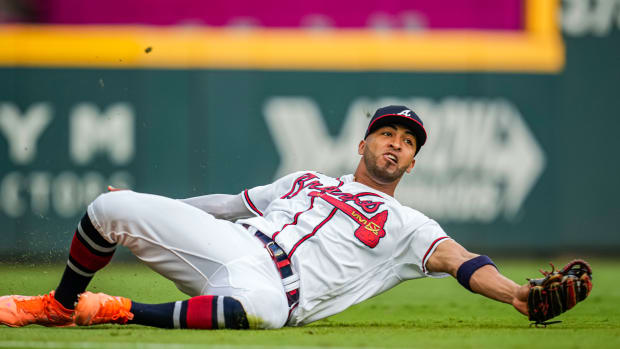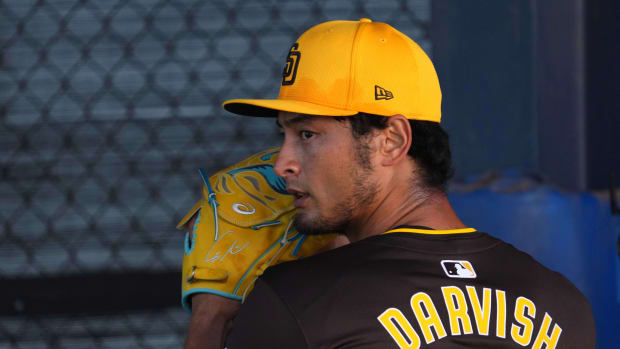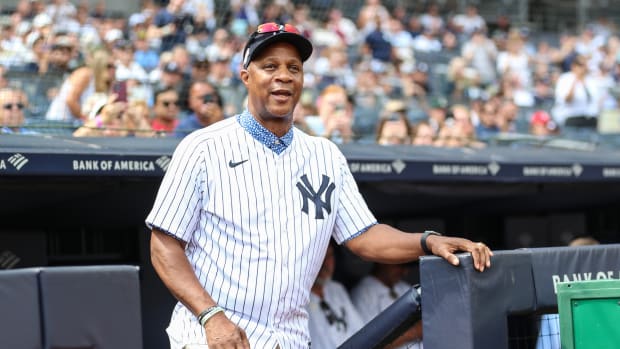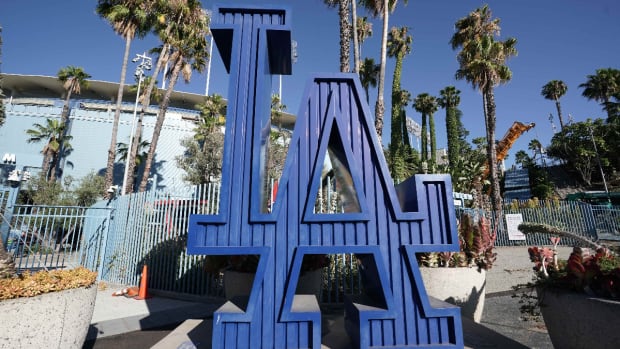Vote the Rock
The Rock is no lock for election; he lacks the milestones and major category rankings that generate buzz come ballot time. His 808 stolen bases (fifth all-time) and 84.7 percent success rate (tops among those with 300 or more attempts) don't register in the context of today's power-saturated game. Indeed, one gets the impression that he may not break 50 percent of the vote initially, and could face years of Blyleven-esque toil on the ballot.
Yet Raines' candidacy has been hotly anticipated for years by those of us old enough to remember the electricity he generated with his dazzling speed and all-around athleticism. Raines could take over a game, as his comeback from collusion-driven contract limbo and his bravura performance at the 1987 All-Star Game showed. Even past his prime, he evolved into a charismatic, highly-sought role player, a staple of two engaging Yankees champions from Joe Torre's early tenure. While he didn't win an MVP award, the seven-time All-Star's skills hardly went unappreciated by those hip to Bill James' sabermetric measures, which valued his ability to get on base and his efficiency once he got there.
By a methodology called "JAWS" that I've used to evaluate the Hall of Fame ballot for Baseball Prospectus since 2004, Raines is overwhelmingly qualified for election. According to JAWS he ranks as the ninth-best left-fielder of all time, behind Barry Bonds, Stan Musial, Rickey Henderson, Ted Williams, Pete Rose, Jim O'Rourke, Ed Delahanty and Carl Yastrzemski -- some pretty fair ballplayers. If that sounds crazy, consider that James himself ranked Raines eighth in his New Bill James Historical Baseball Abstract back in 2001, calling him the second-most valuable leadoff hitter in history, behind only Henderson. He was that good.
JAWS stands for Jaffe WARP Score, admittedly a very self-consciously named and awkwardly-nested acronym. WARP stands for Wins Above Replacement Player, a Baseball Prospectus metric that measures each player's hitting, pitching, and fielding contributions relative to those of a freely available reserve or minor league call-up in runs; it then converts those runs into the currency of wins. Park and league contexts are built into WARP, so that a player in a low-scoring environment such as 1960s Dodger Stadium can be measured on the same scale as one in a high-scoring environment such as turn-of-the-century Coors Field. A solid, full-time player might accumulate five or six WARP in a season, an All-Star seven or eight; a season of 10 WARP often earns a spot in an MVP discussion, if not the award itself. At 13.7 WARP this past season, Alex Rodriguez truly was the most valuable player in baseball.
Given that the Hall itself has no firm standards for enshrinement, voters and interested observers are left to compare candidates with the players already elected. JAWS is built to measure the players on the ballot against Hall of Famers at the same position, as determined by what position the player accumulated the most WARP. By measure, we're not just talking about career totals, which can be padded as a player slogs through his twilight without doing much of merit (see: Craig Biggio). JAWS also accounts for a player's peak via his WARP totals in his seven best seasons. The peak and career WARP totals are averaged to compute a player's JAWS total.
According to his career numbers at Baseball Prospectus, Raines was worth 123.7 WARP over the course of his playing days. That ranks 10th among left-fielders and 87th overall, which doesn't sound impressive until you consider that the Hall contains just shy of 200 non-Negro League players (alas, the Negro Leaguers can't be scored with this system). Raines' peak score of 68.4 -- or 9.8 wins a year -- ranks ninth among left-fielders. Via those two totals, Raines weighs in with 96.1 JAWS, ahead of all but five left fielders already in the Hall. Remember that Bonds, Rose, and Henderson aren't in (yet); the first two may never be, and while the third (eligible for election in 2009) overshadowed and out-valued Raines significantly over the course of his career, this isn't an either/or contest.
Here's how Raines compares to the average Hall of Fame left-fielder, as well as the other left fielder on the ballot -- and the top returning vote-getter among hitters at 63.5 percent -- Jim Rice. I'll also throw in one more player, Lou Brock, a Hall of Fame left fielder to whom Raines is often compared:
Raines not only exceeds the average career and peak averages for Hall-inducted left-fielders, he blazes past them and leaves Brock and Rice in the dust. The Red Sox slugger may have put the fear in opposing pitchers, but as dangerous as he was in his prime, he was still worth 1.8 wins a year fewer than Raines. Power notwithstanding, Rice's .352 OBP is low for a fearsome slugger in a hitters' ballpark as Fenway was during his career. He falls more than 40 wins shy of Raines' career total, and well shy of the Hall average because he retired at 36. Rice's score ranks just 34th among all left-fielders, lower than 14 of the 18 who are enshrined, and also ranking behind "Hall of Very Good" players Roy White, Brian Giles, Minnie Minoso and Brian Downing.
As for Brock, unlike Raines, he has more than 3,000 hits, not to mention some incredible World Series performances. But Brock was worth nearly three wins a year fewer at his peak, and his .342 career OBP is miles behind Raines' .385, and you know what they say about stealing first base. To get to Raines' stratosphere in terms of overall value, Brock would have to connect at an international airport. Brock's credentials bring up a good point about JAWS, though: it doesn't account for everything in a player's career, because awards, batting titles, milestones, and postseason performance are left by the wayside. That's not to say they shouldn't matter in a Hall of Fame case; they add unique color and perspective. But they don't translate directly to on-field wins, to a player's year-in, year-out value to his teams.
Here's something additional to consider about Raines: Of the 67 players who have higher JAWS totals and who are eligible for the Hall of Fame, only three whose careers began after 1900 aren't enshrined: Bert Blyleven (100.2), Ron Santo (100.5) and Bobby Grich (96.7). Blyleven's Hall of Fame credentials have made him a cause célèbre in recent years, Santo keeps coming up short on the Veterans Committee ballots despite overwhelming credentials, and Grich can't even buy a spot on the VC ballot after falling off the writers' in his first year of eligibility.
Their stories are for another day, however. The point here is that Tim Raines compares very favorably to the players already in the Hall of Fame, and he's eminently worthy of his own spot in Cooperstown.






























